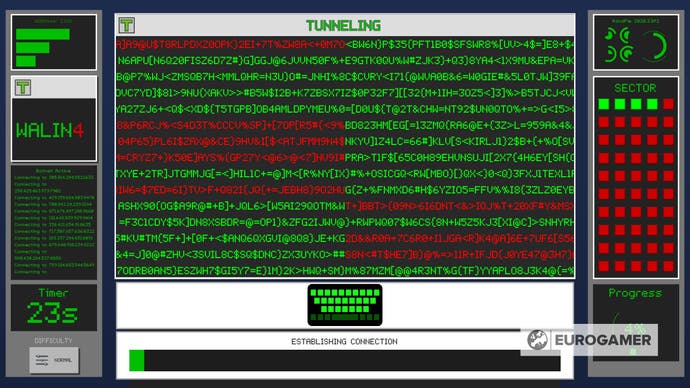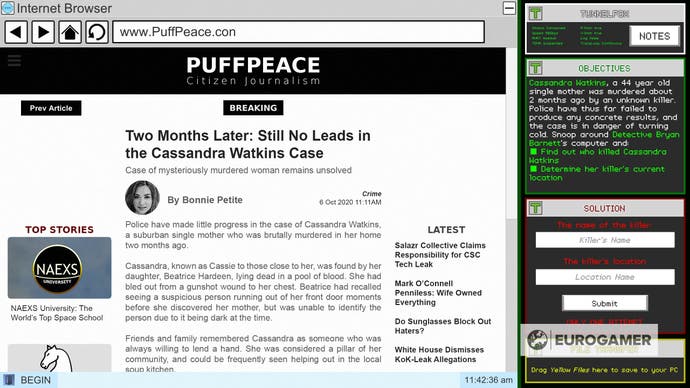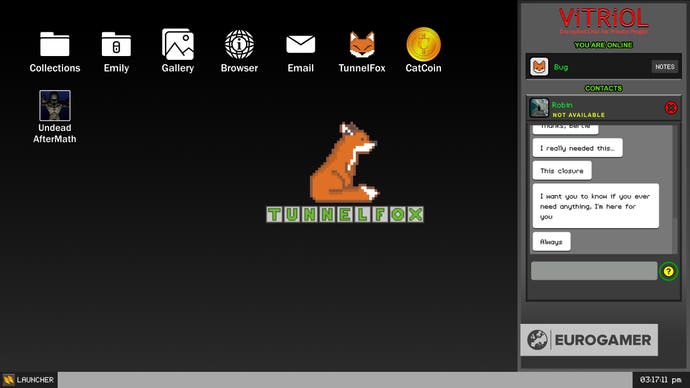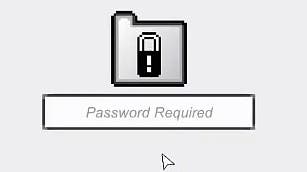Greyhat: A Digital Detective Adventure review - a bumpy hacker thriller
New IP.
I have doctored someone's school grades to make sure they fail and I have exposed a cheating politician. I have taken down a company like Nestle, ended a cult and landed aeroplanes. I have destroyed chemical weapons, I have stopped a nuke. I've done all this and more in Greyhat because I'm the hacker everyone turns to when they need something done.
All I need is an IP address. I plug it into a tunnelling program and then I'm inside their machine, on their desktop, files and folders before me. Some might be locked but there are always clues to passwords lying around. Maybe it's the name of a loved one, maybe it's a birthday, maybe it's their favourite band. I check their emails, their documents and webcam feeds, and sooner or later I find what I need.
Greyhat leapt out at me earlier this year when I played a preview build. I found it sharp, imaginative and intriguing. I particularly loved the way it emulated the feeling of being an elite hacker in a film. You know, one of those people mashing away at a keyboard as a weird interface pops up and then crumbles away under their relentless assault.
It's like that here. When you're chatting in the game's instant messenger (called Vitriol, by the way) you don't individually type each letter but mash either side of the keyboard and the game types for you, either in a positive or negative voice deepening on which side you use. When you find IPs, an over-the-top program dramatically scans all the computers in the world to find your mark. Then, you're in a hacking mini-game where you have to match lines of gobbledygook code by mashing the correct side of the keyboard as fast and accurately as you possibly can. And of course you uncover the kind of secrets hackers dream about, then read about the consequences of your exploits on a news website a day later.

It also has a surprisingly punchy story set-up running through the game like a line, pulling you through, but I don't want to say much about it because the thrill is in the surprise. I wanted to see where that went and I wanted to see what other ideas the game had. And I did. But I didn't expect it to take me this long.
I clocked around 17 hours playtime, which seems way too long to me. Greyhat could easily have landed the story in half the time and would have been stronger for it. But by stringing it out, the formula of mission, story breadcrumb, mission, story breadcrumb, and the mechanics used in them, start to become a chore.
It's particularly a problem when a mission really holds you up. One in particular really vexed me. It involved deciphering an entire hieroglyph alphabet in order to decode a word seen on a wall in a webcam feed. To do this, I had to cross-check a picture of a deity family tree, which had names printed in hieroglyphics, with a poem in an email about one of the deity's bloodlines. Then, I had to use an exam program I'd downloaded to the hacked computer to fill out my alphabet. Back and forth, back and forth, back and forth. And all with no in-game alt-tabbing, no in-game shortcut to minimise or close a window, or arrange them so they are all visible at one time. You can copy and paste notes from an in-game notepad, but for a game about hackers, it's surprisingly awkward for computer-proficient people to use.
Still, I got there in the end, or at least I thought I did. My first answer was wrong meaning I had to redo the whole thing again. To understand how annoying that is, you need to understand the context, the draining reality you've done what feels like the same thing a hundred times before. You've logged in, read through all someone's emails, looked through all their pictures, read all their available documents, looked at their webcam feeds and nosed through their browser history many times before. Just the thought of having to do it all again is wearying.


That's not to say all missions are exactly the same. The themes change and some of the methods evolve to require an extra step of puzzling. You might not be able to see what's on a webcam feed until you work out a way to turn on the light, for example, and then when you turn the light on, you might find a package with an tracking number and a website address on, which you can plug into the browser to find more information from. Things get more complicated as you go on, which is nice, but they always branch from the same beginnings. It would have been lovely to see much wider, multi-step, maybe multi-mission puzzles, rather than the same kind of thing, albeit in different clothing, time and time again.
Some missions are stand-out different, mind you, and up the excitement with time pressure. One had me in control of all the traffic lights in a city, and I had to read live police reports about a car chase to try and red-light the correct junctions to slow a perpetrator down. And in another mission, I was in control of Air Control at a nearby airport and had to direct planes safely to the landing strip.
The problem in these missions - the problem across the whole game, really - is finesse. The ideas are good but the execution isn't. Take the traffic lights: cool idea, but when you factor in never having seen the city before, and not knowing the road names, and not being able to fit a readable layout of the city all in one window while you read police reports, it gets ten times harder to do - especially when the perpetrator begins to speed up. Likewise, with the aeroplanes, the number of which increase each wave you complete. You can only move them around using a finickity manoeuvring system and inevitably, some will collide, although for some reason it doesn't seem to matter a great deal - even with over a thousand dead, which is a disaster by anyone's reckoning, my hacker contacts hailed me as a hero.
That kind of flimsy believability bleeds into the game's story and theme. Obviously, there are ridiculous elements to the game - you stop a nuke for god's sake. But there are other elements, like the game's story, which are supposed to pack a more sober punch. Yet, it doesn't go as far as it needs to here. It doesn't dig as deep into the subject matter as it could and leaves it feeling fake.
Missions feel like this too. It's a kind of speed-dating tour of every spicy topic you can imagine, meaning there's only really time to flirt rather than get to know them. This is fine when it's poking a bit of fun at a massive corporation supposed to be Nestle, or lampooning everybody's favourite villain, the corrupt politician, but it's problematic when the game veers onto serious topics like terrorism. A bomb plot to blow-up a major public event with civilians inside? Um, that actually happened and not long ago. And stereotyped characters who say things like "Onwards to the Heaven that awaits, brother!"? That I do have a problem with.
What Greyhat could really have done with is an edit. Someone to say, "You can't do that," or, "This doesn't work. Cut these missions, deepen the others and speed the whole thing up." It would have been so much better for it. But then it's easy for me to say that. I'm not one person, Leon Lim, making a game. Where does he get resources like that?
And viewed through that lens, Greyhat is an impressive achievement. There's wit and warmth and even tenderness here, and some of the ways Lim finds to deliver new puzzle mechanics are ingenious. But it can be annoying too, and you will need a fair amount of determination to see it through. I'm glad I did because I thought the way it ended was beautiful, but it's a bumpy ride. Still, whoever said being a hacker was easy?










